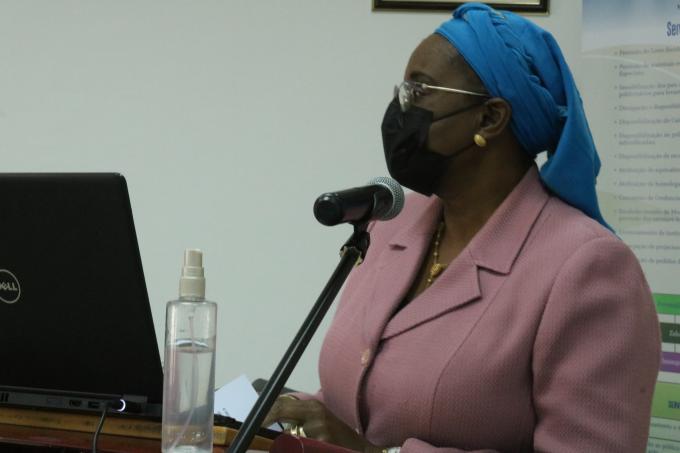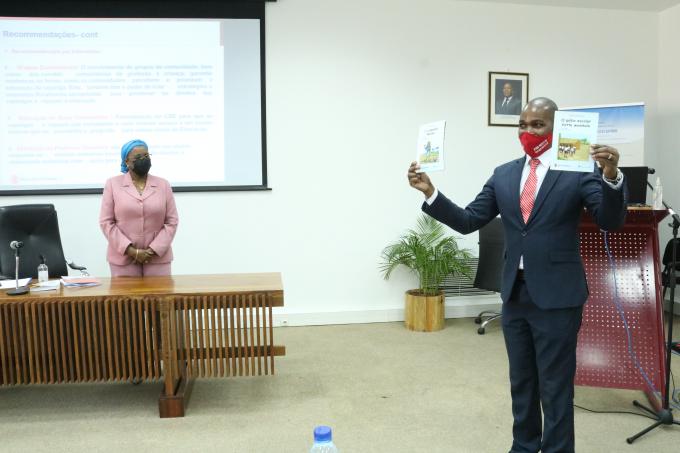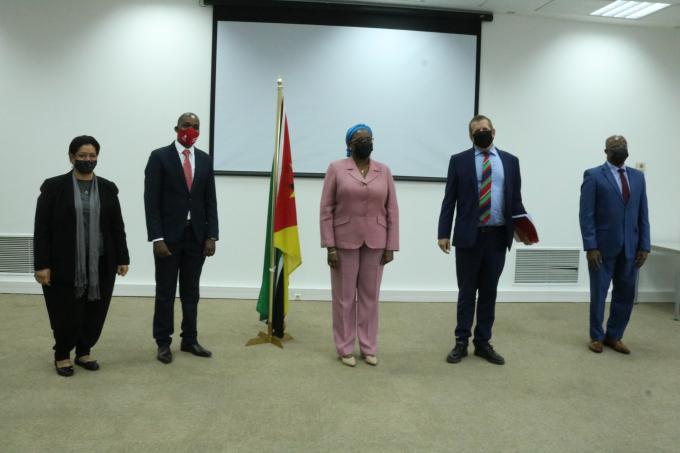Thank you, Save the Children!
“Thank you Save the Children” – these were the words used by the Minister of Education of Mozambique, Carmelita Namashulua, today, when talking about the contribution made by the STAR-G Successful Transition to Advance Girls' Education project, whose final moment took place at an event organized to share the lessons learned during the last three years of the initiative.
According to the Minister, the objectives pursued by STAR-G were aligned with the Government education sector plan, which prioritizes girl’s education, given the barriers (economic, access, teaching-learning and those related to gender and social norms) that continue to privilege boys.
“Girl's education is an imperative of the Government's Five-Year Plan 2020-2024 because they continue with reduced opportunities and therefore the project conceived and implemented in partnership with Save the Children has objectives that reinforce the Government's objectives with regard to strengthen girl’s chances”, said the minister, stressing that “we thank Save the Children for sharing the results and lessons learned and we hope that these will help to strengthen future interventions in favor of girls”.
On the same occasion, Save the Children shared and offered, to the Ministry of Education and Human Development, books to encourage reading and writing developed in the context of bilingual education in Mozambique. These are teaching-learning materials designed in collaboration with the Nampula Teacher Training Institute and the National Directorate of Primary Education, validated for use in pre-school and primary education by the Ministry's Technical Council. For the Minister of Education, these books will also help to boost the skills of girls.
The STAR-G project was implemented as of 2018, benefiting 63,231 children, of which 30,616 girls and 32,615 boys in the provinces of Gaza, Manica and Tete.
Nely Simbine, the STAR-G Project Manager, highlighted significant gains for girls over these three years and underscored lessons learned, including the importance of involvement and collaboration with education officials at all levels, including departments, since the beginning of the project. According to her, this collaboration was crucial to build a common understanding, responsibility, ownership and sustainability.
She also highlighted community mass awareness campaigns as being an effective mean of influencing and increasing positive attitudes among community members, men and women, towards girls' education. On the other hand, Save the Children understands that online and remote learning, resulting from adaptations in the face of COVID-19, are another point to be retained as a good practice in implementing this type of initiatives, which allowed it, in a viable and effective way, to continue and expand learning beyond the classroom into the homes of girls and boys.
Among the successes and challenges shared, the Minister of Education and Human Development understands that all aspects must serve as a lesson to expand the dialogue and to ensure that education services focusing on girls are constantly improved.
Meanwhile, Judas Massingue, Deputy Director for Program Development and Quality at Save the Children, announced that, “as we close the STAR-G project, and inspired by it, we have developed a new initiative called “She Belongs in School”, with the same focus on the education of girls”. This is an initiative, funded by the Canadian Government, to be implemented in the provinces of Nampula and Niassa and has the particularity of being already adapted to the challenges of COVID-19.
 Mozambique
Mozambique 

